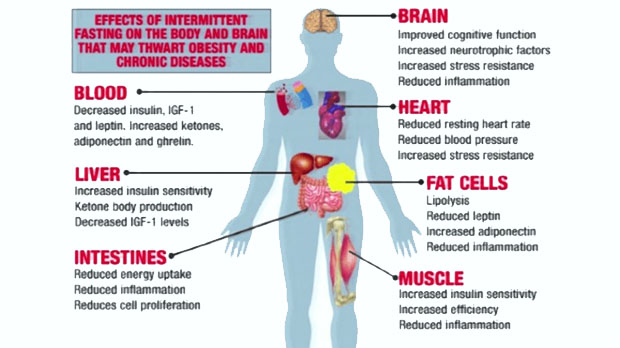Health Benefits of Intermittent fasting (IF)
As a holistic nutritionist and cancer coach, I see many individuals with health concerns related to inflammation. While acute inflammation is natural for the body to fight off infections, long term inflammation is known to be the driver of many significant health conditions.
While my focus is to help most of my clients learn to eat 3 proper healthy meals which can be a struggle, I wanted to delve into a popular topic called Intermittent Fasting that I am often being asked about.
The idea of fasting can sound overwhelming and I would like to state that there is no one way to do IF. Some individuals do it for religious reasons and others may do it for a medical test or procedure as I most recently did for my colonoscopy. I stayed on clear liquids and drank several cups of clear bone broth thru my colonoscopy prep which many know is neither fun nor easy. I found approaching it this manner made it much easier than in the past times. Therefore, if one can think of IF as a reset or method of restoring balance you may be pleasantly surprised. There are actually MANY ways to approach a fast or intermittent fasting. It is a practise of not consuming food for a period of time, rather drinking beverages like herbal teas, water, coffee, and even some mineral or clear bone broths.
Some of the health benefits include:
- May improve immune system
- May lower risk in some cancers
- May mprove autoimmune conditions
- Can improve blood sugar and pre-diabetes!!
- Encourages weight loss and reduces cravings
- Improvement in cognitive function
- Heals the gut and improves some conditions such as IBS, Crohn’s, Colitis
Think of intermittent fasting as a reset or a method of restoring balance.
Approaches to Intermittent Fasting
There are several different approaches and this is where individualization is key:
- Simple fast where you do not eat for 12- 14 hours which generally means not eating after dinner…. Let’s say from 8pm to 8-10 in the morning.
- Restricted eating window which means eating in a condensed period of time… let’s say between 12 to 8 pm or can be started from 7 am to 3. Read the latest research reference below regarding circadian rhythm***
- Fasting for a longer period of time starting at 16 hrs
- Fasting for a period of 24 hours
- Cycling between low-calorie days and normal caloric intake known as the 5:2 protocol
- Others options as well.
Caution: If you are have hormonal concerns such as adrenal fatigue or any history of disordered eating you will want to avoid fasting.
Intermittent fasting can be a great tool to help you get healthier!! If you are interested in exploring these options further and with healthy foods and menu ideas please contact me here.
Sources:
https://www.johnshopkinshealthreview.com/issues/spring-summer-2016/articles/are-there-any-proven-benefits-to-fasting
*** https://www.health.harvard.edu/blog/intermittent-fasting-surprising-update-2018062914156
Marsha Fenwick, C.N.P. R.R.T.
Marsha is not your typical nutritionist. She began her career 20 years ago as a Registered Respiratory Therapist. Later, she earned her certifications as a Registered Nutritional Consultant Practitioner, Certified Nutritional Practitioner, and Registered Orthomolecular Health Practitioner. Marsha is also a Certified Cancer Coach. Her clinical practice specializes in: sustainable healthy weight loss, digestive health, women’s hormones, diabetes, heart health, and cancer prevention and recovery. For more information and to book a FREE 15 minute consultation go to Marsha Fenwick Nutrition.







